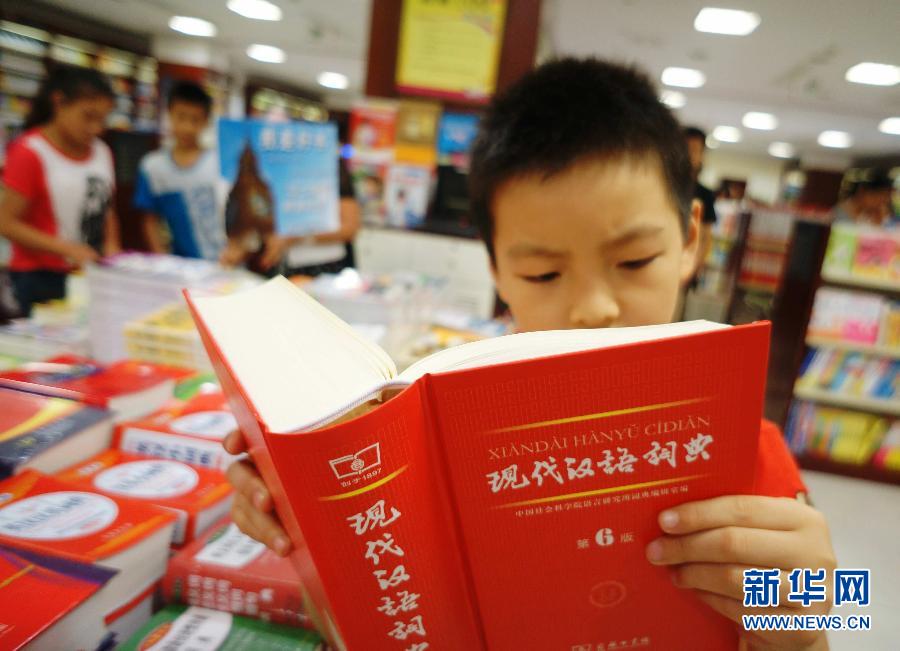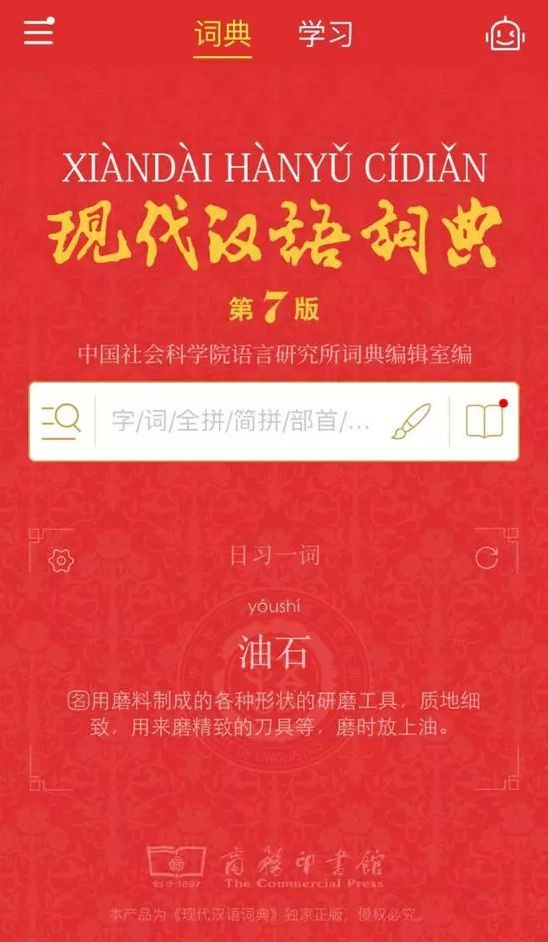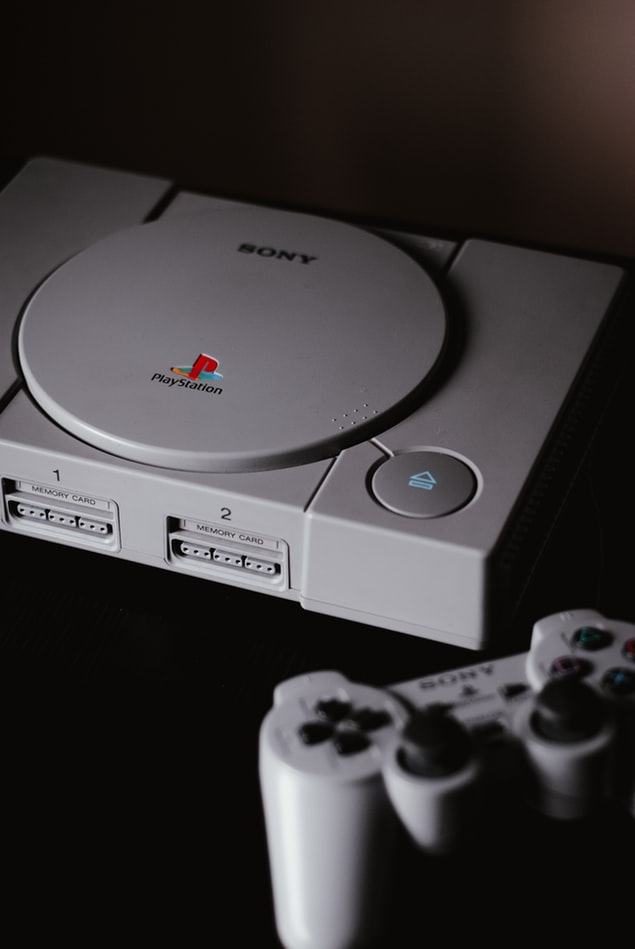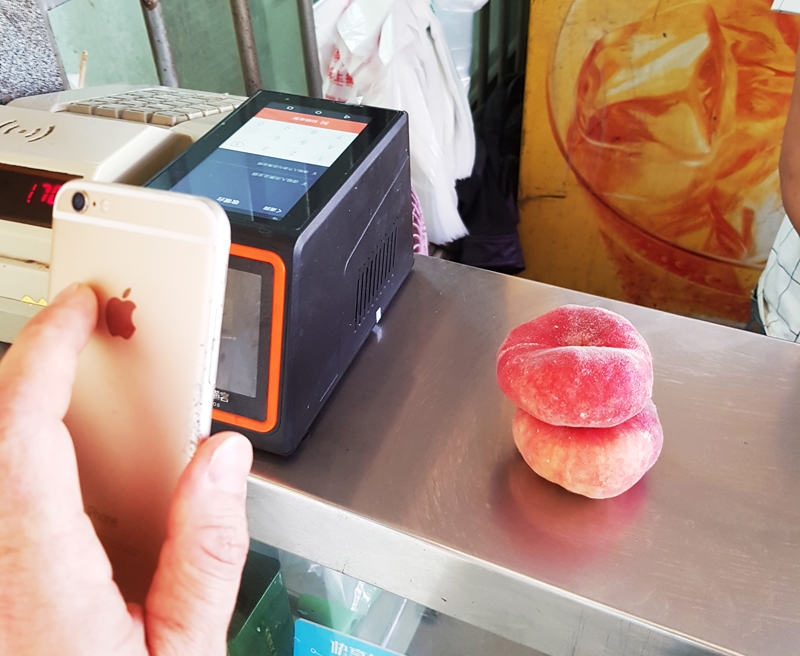壮丽70年:《现代汉语词典》展现中国发展变革 Dictionary chronicles China's changes
中国日报网 2019-09-27 12:52

《现代汉语词典》不仅是中小学生必备的学习工具书,其中词条的收录和删除也展现出时代的变迁和中国的发展变革。最新版的《现代汉语词典》还收录了一些时下流行的网络潮词。

7月15日,一名小读者在杭州一家书店里阅读《现代汉语词典》第6版。龙巍摄(新华社发)
In China, if a primary or middle school student wants a reference book, the Modern Chinese Dictionary will definitely be at the top of the shopping list.
在中国,如果一个中小学生想要一本参考书,《现代汉语词典》肯定是首选。
In mid-September, the dictionary launched its mobile app to offer more convenient services for users and enrich their reading experience, according to Yu Guilin, director of the Chinese language editing center of the Commercial Press.
商务印书馆汉语编辑中心主任余桂林表示,9月中旬,该词典推出了手机应用程序,为使用者提供更便捷的服务,丰富他们的阅读体验。


With a far-reaching influence in learning the Chinese language, the Modern Chinese Dictionary has sold more than 70 million copies globally since its first edition came out in 1978, the same year China began its reform and opening up.
自1978年首次出版以来,《现代汉语词典》已在全球售出7000多万册,对汉语学习产生了深远的影响。同一年,中国开始改革开放。
But it was a long and uphill journey for compilers to create the dictionary in Mandarin Chinese from scratch. They started the project in the 1950s when most dictionaries on the market were written in Classical Chinese and had been outdated.
但是对于编纂者来说,从零开始编写汉语词典是一个漫长而艰难的过程。他们在20世纪50年代开始编写,当时市面上大多数词典都是用文言文编写的,已经过时。
from scratch:从头开始
"Telegraph" was among more than 56,000 entries in the first edition of the dictionary, new to Chinese at that time.
“电报”是首版《现代汉语词典》收录的超过5.6万个词条之一,这在当时还是新鲜事物。
entry[ˈentrɪ]:n.条目
Li Xiangguo, 72, recalled the heyday of the telegraph when he worked as a public servant in northwest China's Shaanxi province in the early 1980s. At the time, Chinese people delivered messages mainly through telegraph.
72岁的李向国(音)回忆起20世纪80年代初电报的全盛时期,当时他在中国西北的陕西省当公务员。当时,中国人主要通过电报传递信息。
heyday [ˈheɪdeɪ]:n.全盛期
"Telephone sets were not widely available in the whole county. Telegraphers were very busy tapping on the keys of the telegraph machines every day," Li said.
他说:“当时,电话机在全县并不普及。电报员每天都忙着收发电报。”
Long gone are the days when people mustered enough patience to wait hours, days or weeks for their messages to get through. Nowadays, messages can be delivered through a few taps on a handheld screen.
人们耐心地等待数小时、数天或数周才能收到信息的日子已经一去不复返了。如今,只需在手持设备的屏幕上轻敲几下就可以传递信息。
The change has been reflected in the dictionary. In the sixth edition of the Modern Chinese Dictionary, the new term "cellphone" was added.
这一变化已反映在词典中。《现代汉语词典》第六版增加了“手机”一词。
As Lyu Shuxiang, the late chief editor of the dictionary put it, the modern dictionary should keep up with the times through revisions.
正如已故的词典主编吕叔湘所说,现代的词典应该通过不断的修订与时俱进。
Through rapid economic growth and drastic social change, the Modern Chinese Dictionary has been revised every six to seven years. Seven editions have been published since the founding of the People's Republic of China in 1949.
由于经济的快速增长和社会的剧烈变化,《现代汉语词典》每六到七年就会修订一次。自1949年中华人民共和国成立以来,这部词典已经出版了七次。
In the version published in 1996, which had over 61,000 entries, there were many new words, phrases and idioms, such as "self-employed individual," "commercial residential building" and "taxi-hailing," which emerged with the rise of the market-oriented economy since China's reform and opening up.
1996年出版的版本有超过6.1万个词条,其中有许多新词、短语和习语,如“个体经营者”、“商品房”和“打车”,这些都是改革开放以来随着市场经济的兴起而出现的。

作者:helloimnik(图片来源:unsplash)
Influenced by Western culture, some English words and acronyms including "KTV" and "DVD" have also found their way into the Modern Chinese Dictionary.
受西方文化影响,“KTV”、“DVD”等英语词汇和缩略词也被收录进《现代汉语词典》。
The day he got his first DVD player has stuck with Gao Zhijun for a long time. He spent more than 2,000 yuan, about three-month salary, on a DVD player in 1997 when this device was accessible but still expensive in China.
高志军(音)一直都忘不了他买到第一台DVD播放机的那一天。1997年,他花了2000多元买了一台DVD播放器,这大约是他三个月的工资,当时这种设备在中国有售,但价格昂贵。
"My family was very excited and watched the same movie three times in one day," he said. "Since then we often invited friends to watch movies at our home."
“我的家人非常兴奋,一天之内把同一部电影看了三遍,”他说。“从那时起,我们经常邀请朋友来家里看电影。”
"We pay special attention to emerging words and phrases in the society and will collect them through combined efforts of humans and machine," said Tan Jingchun, a researcher with the Institute of Linguistics under Chinese Academy of Social Sciences who is in charge of the compilation of the dictionary's latest edition.
“我们特别注意社会中出现的新词和流行语,借助于机器将它们收集起来,”负责最新版词典编纂的中国社会科学院语言研究所研究员谭景春说。
Researchers use self-developed software to find out new words in various databases and on the internet and select possible entries for the dictionary.
研究人员使用自主研发的软件在各种数据库和互联网上查找新词,并为词典选择备选词条。
"Whether a new phrase can be included in the dictionary is decided by several rounds of experts' discussions. We are very prudent in making decisions," he said.
谭景春说:“一个新词是否能被收录是专家经过几轮讨论后决定的。我们在做决定时非常谨慎。”
Over time, outdated expressions have been removed, while new words and new meanings have sprung up in the 21st century, especially in the internet era.
随着时间的推移,过时的表达方式已经被淘汰,而新的词汇和新的含义在21世纪如雨后春笋般涌现,尤其是在互联网时代。
Chinese online users soared from 620,000 in 1997 to 854 million in June 2019, while the internet penetration rate climbed to 61.2 percent.
中国互联网用户从1997年的62万飙升至2019年6月的8.54亿,互联网普及率攀升至61.2%。

顾客通过扫描二维码付款。(图片来源:中国日报网)
"It is noticeable that the impact of the internet is ubiquitous in the Modern Chinese Dictionary," Tan said. "QR code" was added in the latest edition of the dictionary published in 2016.
谭景春说:“值得注意的是,互联网的影响在《现代汉语词典》中无处不在。”2016年最新出版的词典中加入了“二维码”一词。
ubiquitous [juːˈbɪkwɪtəs]:adj.普遍存在的;无所不在的
Zhao Feng, a 31-year-old internet company employee in Beijing, scan QR codes at least 10 times per day. From activating a shared bike and buying breakfast to communicating on social media apps, the popularity of QR codes is beyond his imagination.
31岁的赵峰(音)是北京一家互联网公司的员工,他每天至少扫描10次二维码。从激活共享单车、购买早餐到在社交媒体应用上交流,二维码的普及超出了他的想象。
In the latest 1,800-page edition of the dictionary, internet buzz words have also been included, such as "Yanzhi" for "looks" and "Xueba" referring to "straight-A student."
在最新一期1800页的《现代汉语词典》中,一些网络流行语也被收录其中,比如“颜值”,“学霸”。
"Changes of dictionary entries not only reflect the subtle development of the vocabulary and mentality of Chinese people, but also record the evolution of the era," Tan said.
谭景春说:“词典词条的变化不仅反映了词汇和中国人心态的微妙发展,也记录了时代的变迁。”
英文来源:新华社
翻译&编辑:yaning

















 英语点津微信
英语点津微信 双语小程序
双语小程序